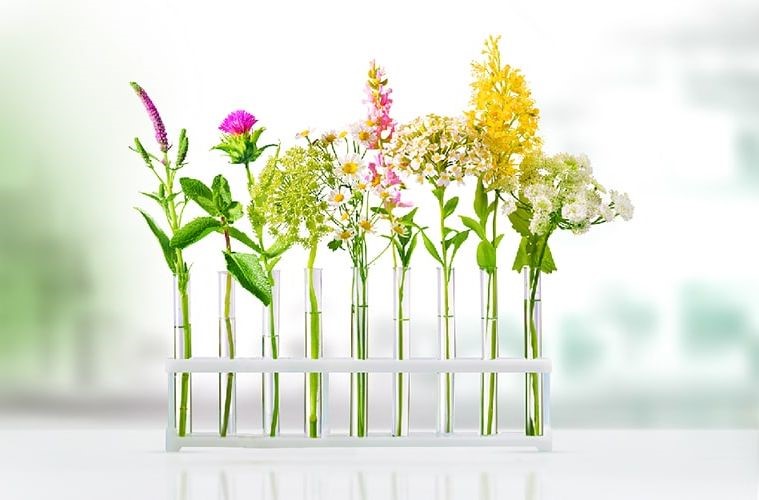-
Free Shipping in Greece over €30!

-
Shipping within 24 hours!

-
Worldwide shipping!

The Value of Herbs
Man has evolved over the last 300,000 years in the earth's ecosystem because it has provided him with the 4 vital elements of life: oxygen, water, food and protection.
We all understand the importance of oxygen, water and food but the importance of protection is not easily understood. The earth's ecosystem provides us with two types of protection: natural protection and health protection.
With regard to natural protection, let us think briefly whether human life would be possible if the planet had a flat surface without mountains, caves, trees, etc. which provide protection from the bad weather or wildlife, or materials to build spaces for protection.

With regard to health protection, let us consider the evolution of life expectancy. The life expectancy of the Paleolithic man was 35 years. Life expectancy at the beginning of the 19th century, when the science of pharmacology was founded, was 65 years. This increase of 30 years is mainly due to herbs.
With herbs man could cure simple diseases from which he died, such as daily infections or common colds, as well as to use them in order to prevent common illnesses.
Since the early 19th century, pharmacology and medicine have increased life expectancy. In recent years, however, the following negative impacts for our health have taken place:
• our ecosystem has deteriorated due to air, water and soil pollution and in many cases is responsible for causing diseases,
• our lifestyle is detrimental to our health (long working hours, stress, insufficient sleep, foods with dangerous additives, smoking, alcohol, etc.).

These negative health effects cannot be addressed with medicines. The reason is that each medicine has a very specific action on an organ or system or function of our body. There are no medicines that address the effects of environmental pollution or deterioration of our health from our lifestyle.
These negative health effects can only be addressed by their disappearance, i.e. with the "return to nature". However, since it is virtually impossible to leave cities and live in a clean and natural environment, our second best option is to 'bring nature into our lives', that is, to bring components of nature into our daily lives.
Herbs are these components of nature that can provide us with prevention, restoration or improvement of our body functions and symptomatic or causal treatment of mild health problems.
In recent years the use of herbs has been increasing geometrically. This was also supported by the scientific documentation of their beneficial actions. Extensive scientific research is currently being carried out not only to confirm scientifically their efficacy, but more to identify the exact ingredients of each herb that are responsible for their preventive or curative properties, so that we can obtain each herb in the most efficient way, find the minimum dosages and identify any interactions with other herbs or medicines.

Th. Kyrlis













